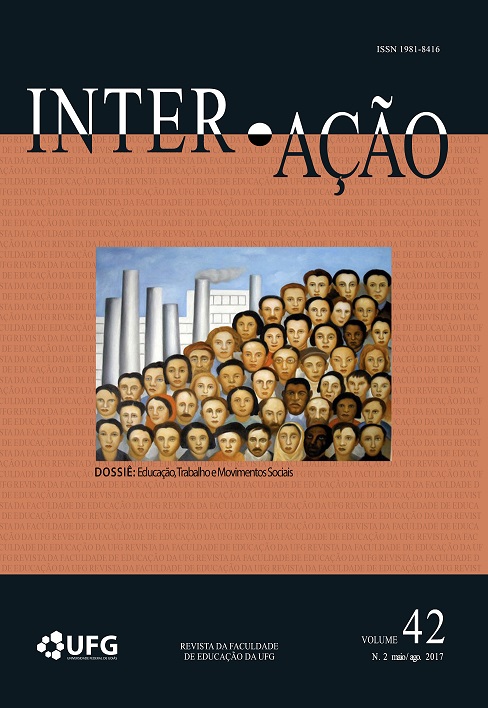A CONTRIBUIÇÃO DO PENSAMENTO FREIRIANO NO PROCESSO DE EMPODERAMENTO DA JUVENTUDE QUILOMBOLA DE PARATIBE, JOÃO PESSOA – PB: UMA ANÁLISE DA EXPERIÊNCIA DO PROJETO SOCIAL PARATIBE EM AÇÃO.
DOI :
https://doi.org/10.5216/ia.v42i2.44016Mots-clés :
Paulo Freire, Juventude quilombola, empoderamento, Paratibe em Ação.Résumé
O presente artigo visa discutir a contribuição do pensamento freiriano no processo de empoderamento da juventude na Comunidade Quilombola de Paratibe, João Pessoa – PB, por meio da análise das práticas em Educação Popular do Projeto Social Paratibe em Ação, atuante na comunidade desde 2008. Buscamos relacionar como a prática educativa fundamentada no pensamento freiriano contribui no processo de fortalecimento da identidade e da cultura da juventude quilombola. Para isso, destacaremos a contribuição de Paulo Freire a partir da análise da experiência do Projeto Social Paratibe em Ação. Utilizando de revisão bibliográfica e de entrevistas, a fim, de compreender a importância do fortalecimento da identidade quilombola por meio de uma educação emancipadora.
Téléchargements
Téléchargements
Publié-e
Versions
- 2026-02-03 (2)
- 2017-12-07 (1)
Comment citer
Numéro
Rubrique
Licence
© Revista Inter Ação 2017

Cette œuvre est sous licence Creative Commons Attribution - Pas d'Utilisation Commerciale 4.0 International.
A Inter-Ação utiliza como base para transferência de direitos a licença Creative Commons Attribution 4.0 para periódicos de acesso aberto (Open Archives Iniciative - OAI). Por acesso aberto entende-se a disponibilização gratuita na Internet, para que os usuários possam ler, baixar, copiar, distribuir, imprimir, pesquisar ou referenciar o texto integral dos documentos, processá-los para indexação, utilizá-los como dados de entrada de programas para softwares, ou usá-los para qualquer outro propósito legal, sem barreira financeira, legal ou técnica.
Autores que publicam neste periódico concordam com os seguintes termos:
1) Autores mantém os direitos autorais e concedem à revista o direito de primeira publicação, com o trabalho simultaneamente licenciado sob a Licença Creative Commons Attribution que permite o compartilhamento do trabalho com reconhecimento da autoria e publicação inicial nesta revista.
2) Autores têm autorização para assumir contratos adicionais separadamente, para distribuição não-exclusiva da versão do trabalho publicada nesta revista (ex.: publicar em repositório institucional ou como capítulo de livro), com reconhecimento de autoria e publicação inicial nesta revista.
3) Autores têm permissão e são estimulados a publicar e distribuir seu trabalho online (ex.: em repositórios institucionais ou na sua página pessoal) a qualquer ponto antes ou durante o processo editorial, já que isso pode gerar alterações produtivas, bem como aumentar o impacto e a citação do trabalho publicado.















